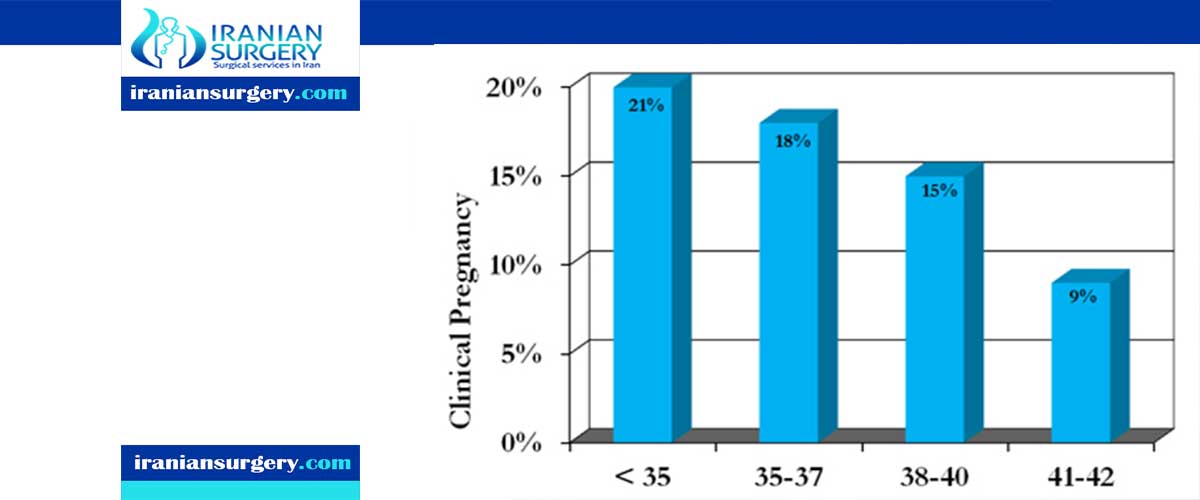How can I increase my chances of successful IUI?
Does IUI work on the first try?
How successful is IUI?
IUI success rates by age
Age affects fertility and age affects IUI success rates. As with most fertility procedures, IUI success is higher for younger women.
Here are the chances of pregnancy after one IUI cycle, by age:
- Under 35: 10 to 20 percent chance of pregnancy
- Between 35 and 40: 10 percent chance
- Women 40 and above: 2 to 5 percent chance
The good news is that most people that try IUI will have a good chance of becoming pregnant over time. However, you may need to be willing to try IUI multiple times. It may take between 3 to 6 IUI cycles before a pregnancy occurs. If you have tried IUI for 3 to 6 cycles and have not gotten pregnant yet, it is time to discuss other options with a fertility specialist (reproductive endocrinologist).
If you are over 35, you may want to talk to your doctor to see if in vitro fertilization (IVF) is a better first option for you. In women over 40, it may be best to move straight to IVF.
Read more about : Type of Infertility Treatment in Iran
Read more about : Egg donation in iran
Read more about: IUI vs IVF success rates over 40
How can I increase my chances of successful IUI?
1. Meet a Fertility Expert
The IUI process is governed by a reproductive endocrinologist who can even cancel cycles if too many eggs are produced. Sometimes, experts suggest other ways of conception, so make sure you’re reaching out to the right person for treatment.
2. Do Your Research
If you’ve chosen IUI because of infertility, then you should go for easy-on-the-pocket options such as IVF. For women above 40 years of age, IVF is more effective than IUI.
3. Eat Healthily
Your diet influences the success rate of IUI. Add more protein-rich foods to your plate and cut down on carbs. In fact, even if you’re struggling with Polycystic Ovary Syndrome (PCOS), switching to a healthier diet can increase the chances of conception. A good diet always makes way for a better pregnancy.
4. Start Exercising
Moderate exercise is also good after IUI. However, rigorously working out isn’t recommended by experts. You just need to be active and not sit in a stationary position for long.
Read more about: The keys to a have successful IUI
5. Avoid Smoking
As per research, women who smoke need more gonadotropin doses for ovarian stimulation. This negatively affects the IUI success rate. Hence, quit smoking.
ADVERTISEMENT
6. De-stress and Control Anxiety
Don’t stress yourself out. Going through IUI may lead to an emotional upheaval, but learn to relax and have realistic expectations. This will make your body react positively to IUI.
7. Try Acupuncture
Acupuncture practitioners/ authorities recommend acupuncture therapies to increases the flow of blood and eventually improve the quality of the egg. Although allopathy doesn’t recommend it, acupuncture authorities state the therapy could increase chances of getting pregnant.
8. Take Prescribed Supplements
Coenzyme Q10 (Co Q10) and DHEA are supplements that are quite helpful as they improve fertility, and indirectly improve IUI. Bear in mind that these medicines must be prescribed by your doctor.
Read more about: IUI success symptoms
9. Have Sex After IUI
Doctors say that having sex after IUI actually helps. This is because, during sex, the uterus begins to contract, and pushes the sperm towards the fallopian tubes, making the process more efficient.
10. Be Happy
Do things that make you feel happy and content. Those who believe in the Law of Attraction say that you attract what you imagine. So, when you want to get pregnant, your life must reflect the joy of having a baby.
Read more about: IUI vs IVF
Does IUI work on the first try?
IUI success rates were 16.4 percent per cycle for the first three tries or 39.2 percent if looking at all three trials together. However, for IUI treatments cycles 4 through 6, the success rate dropped significantly to only 5.6 percent.
Read more about: IUI and IVF side effects
Does success rate increase each IUI?
IUI success rates were 16.4 percent per cycle for the first three tries or 39.2 percent if looking at all three trials together.
How successful is IUI?
- Women often have a 10 to 20 percent chance of getting pregnant with just one IUI cycle.
- The more cycles of IUI you undergo, the higher the chance is for a pregnancy. With 3 to 6 cycles of IUI, pregnancy rates can be as high as 80 percent.
- The pregnancy rate with IUI is similar to, or just slightly lower than, pregnancy rates of fertile couples that become pregnant on their own.
Insemination success rates vary depending on a number of factors including:
- A woman’s age
- Fallopian tube status (at least one open tube)
- The sperm sample (In men with very low sperm counts less than 5 million total motile sperm IUI is generally not successful).
Read more about: IUI procedure step by step
IUI success rates by age
- Women aged 20 to 30: 17.6% pregnancy rate, 13% delivery rate.
- Women aged 31 to 35: 13.3% pregnancy rate, 10% delivery rate.
- Women aged 36 to 38: 13.4% pregnancy rate, 9% delivery rate.
- Women aged 39-40: 10.6% pregnancy rate, 7% delivery rate.
- Women over age 40: 5.4% pregnancy rate, 3% delivery rate.
Read more about: iui vs ivf vs icsi
10 common questions about IUI success rate by age
[kkstarratings]



